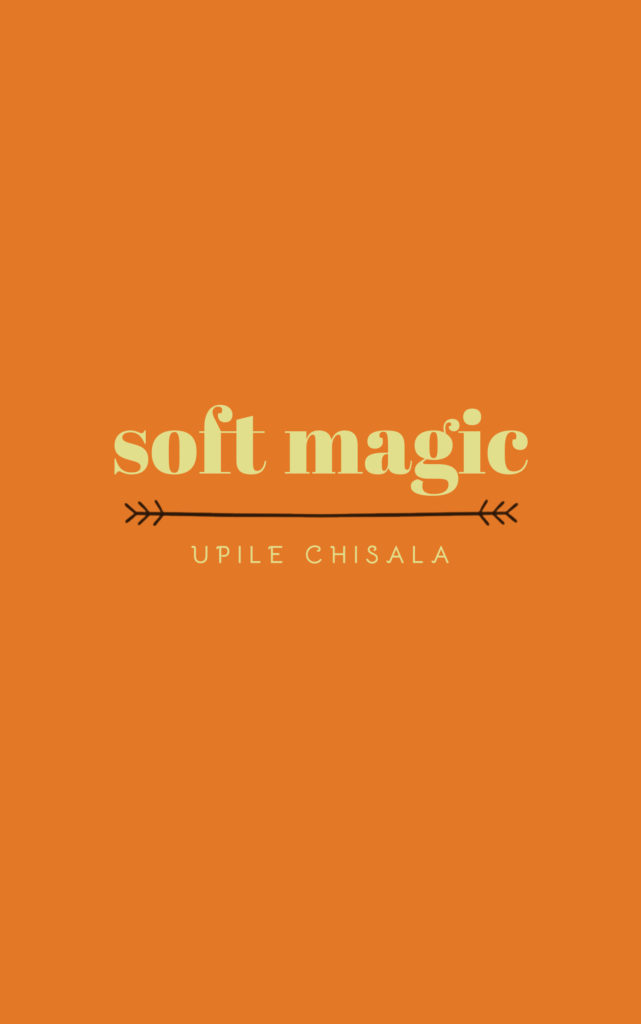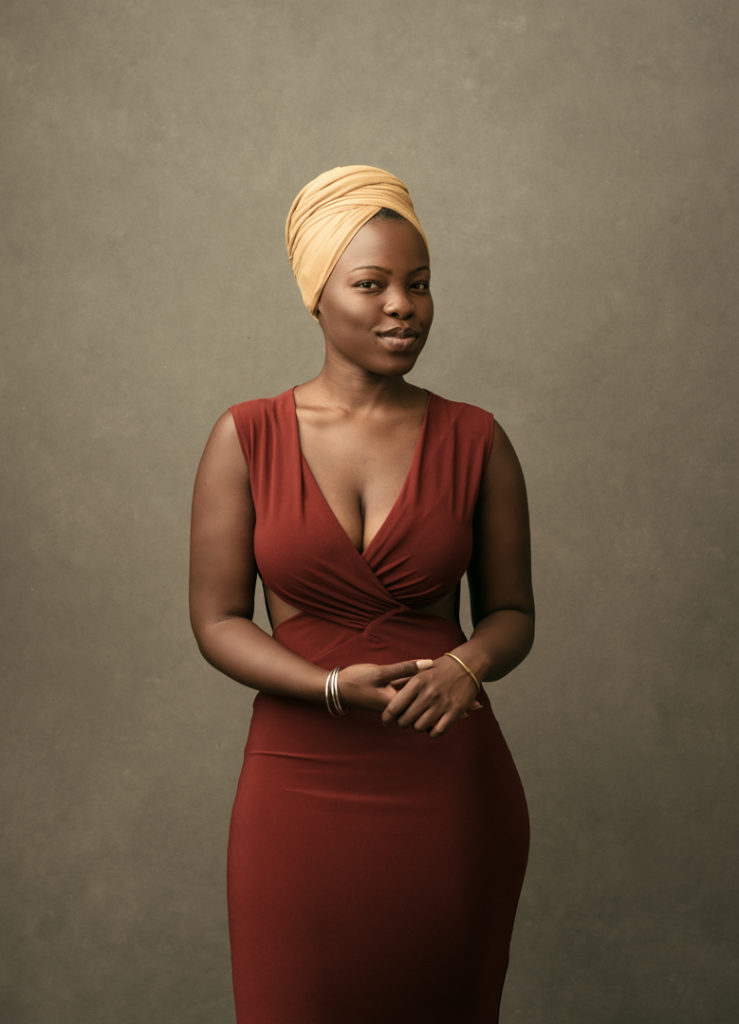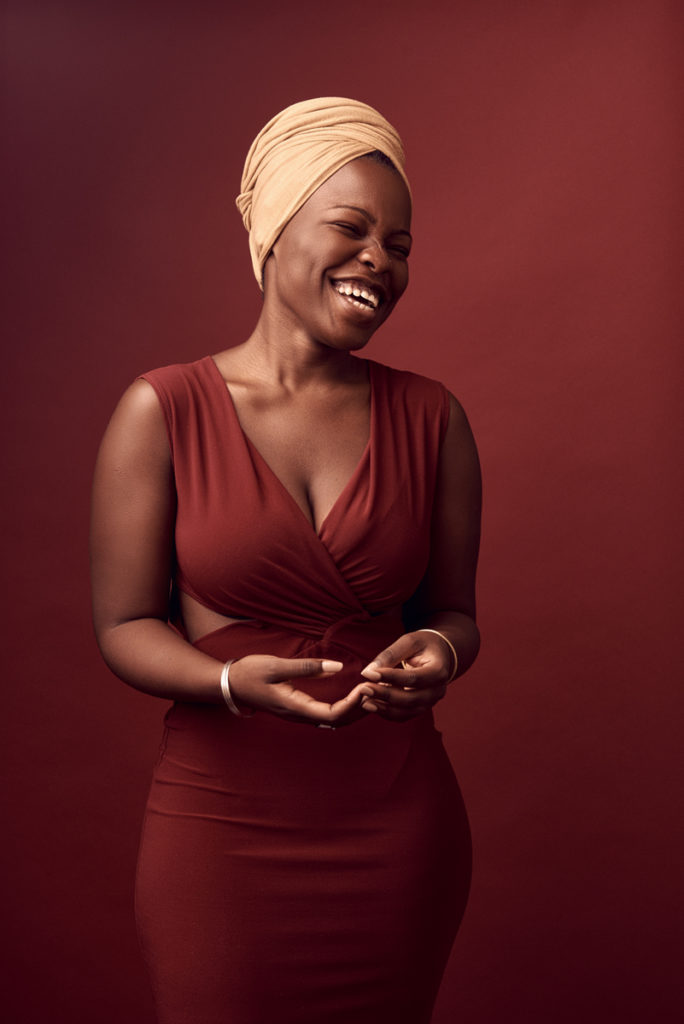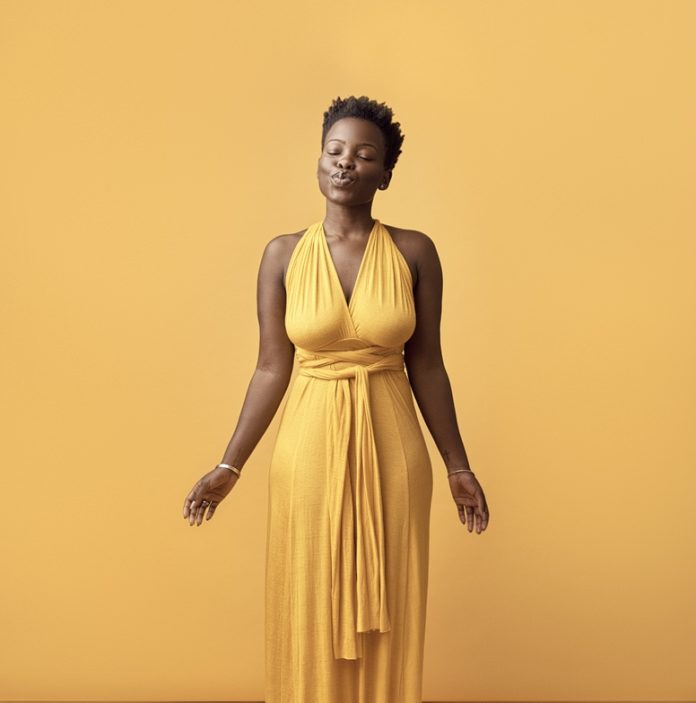“Growing up, I never read books by black women,” the Malawian storyteller Upile Chisala told an audience at the Sandton Exclusive Books on Wednesday evening. “My school system was set up in a way that we read Shakespeare and other white writers. I never saw myself in these books to the point where I constantly wanted to change my name. I thought, ‘If I don’t see myself in a book, and I don’t see myself on TV then surely blackness and being a black woman is not something which you aspire to.’”
“Writing for me, especially Soft Magic, came in a time when I was desperately longing for blackness,” the Oxford University graduate continued. “Black women are everything, I was raised by black women. It continues to be important in my work to put black women in the forefront. I don’t want another Upile growing up without having heard of herself in a book. The more I share these experiences — a black women’s experiences — the more I am doing justice for what I know black women to be.”
Chisala was due to read from her poetry collection Soft Magic, in which she summons growth, healing, joy, and love. In light of her devotion to black women, it was fitting that the audience was mostly made up of black women.
Before the reading, The Daily Vox sat down with Chisala (who, wrapped in a mustard dress, is as beautiful as Instagram shows) for a chat about her life and stories in a bustling Sandton coffee shop.

Why do you prefer to call yourself a storyteller instead of just a plain old poet?
I’m an all-round creative and just saying a poet alone is fitting me into a box. I want to be an author of children’s books — I did write a children’s book last year for an organisation — to design homeware, take photos, be part of creative directing. Whatever I touch and put my heart into: I’m telling a story. Even in my academic work I was still a storyteller because I was working with the stories of women and their birthing experiences on an island in Malawi.
Speaking of stories, can you tell us a little bit about how you became interested in them. What is your earliest memory of stories?
In Malawi, we have a storytelling tradition where whoever takes care of you will tell you stories. As they tell stories they ask us if we’re still with them and we say “titilonse” which means “we’re still together”. I loved those moments when I sat down with the woman who took care of me.
She would constantly tell us stories and she was this funny character who said a lot of things that were out of this world. I remember once biting her as a child… Children are annoying sometimes! And she told me if she rubs chicken on [the bite mark], all my teeth would fall out. I remember being horrified!
I’ve also always had a curiosity for how stories travel, whether it’s gossip or a tale. How did you hear it? And how did I hear it? How do we, who have very few common experiences, somehow have this one thing that we both grew up around? I think a fascination with stories is something that has always been part of my life.
You seem like you were a mischievous, curious child. What were you like growing up?
I’m the last of five. Everyone else is much older than me so I grew up a lot around my brother who is three years older than me. I was outside riding bicycles with the boys, climbing trees. I grew up in a small town so it was a lot of fun. My parents really encouraged us not to be watching TV all the time too. If I wasn’t outside, I was inside writing or creating characters. I loved to play with Barbies and paper dolls. It wasn’t the fascination with fashion or beauty but the idea of stories. I was just that kid who loved to talk to herself. All those characters were put down on paper. I was constantly writing. Honest to God, I started writing and compiling actual stories at four. My mother would collect all the different things that I wrote.

This tradition of writing and publishing your work definitely endured. Can you tell us about your writing journey starting from when you self-published Soft Magic?
Self-publishing was the thing I did to protect my work. I started writing a lot online, anonymously at first, then I started sharing my work. I decided I would put it in a book somewhere so I could protect it. Amazon had this cool option where you could just upload your book. It takes 72 hours and then it’s a whole book. I did some social media to push it.
Then last year, I met my literary agents who said they could get me a publishing deal. I was afraid because it was something I wanted my whole life. I wanted that recognition but I never thought I was good enough. Last year, I was debating what I wanted to do with my life. I finished a second Masters, I’ve done a Masters in Medical Anthropology and African Studies. Then I said I’d go to law school and become a lawyer. I was sitting on it and it didn’t feel good in my gut. Storytelling is something I have done all my life, something I loved. My partner and my family told me, ‘If your gut says this is what you want to do then do it.’ It’s a great way for a four-year journey to bloom and become everything I ever wanted.
Since Soft Magic, how do you view your journey and growth as a writer?
I started writing Soft Magic at 17, stopped, and then finished it at 20. My writing changes. As a poet I’m really glad to just be growing. Sometimes I read Soft Magic and it’s scary to me because this is a book I self-published four years ago. I think, ‘Wow, did I write that?’ Now I may not have word it the same way but still I have moments where I’ll read a poem and I’m like, ‘Wow, I’m really deep and I’ve been deep.’ It’s also scary realising what kind of person I used to be, a good kind of scary, like I’ve been in tune with myself.
Then, I was still afraid of taboo and addressing intergenerational trauma. Talking about something as harmless as sex, I was afraid of. I’m kind of vague in my first book. But if you follow my journey I unfold and unravel as an artist and share more. It also has a lot to do with my identity.
These are not things you talk about as an African woman, as a black woman. There’s a lot of respectability, there’s so many rules and I’m finally at a point in my life where I’m like, ‘Forget the rules, if I want to talk about it then I will talk about it’. If my book is the work that strikes a conversation then I’ve done my part. If it seems like I’m very naked in my work then that’s it, I’ll be the sacrificial lamb in that way.
Your work is very naked, and that’s a testament to your artistry. How do you bare yourself in your work?
A lot of my work started off in sadness, in a dark place. I mentor this class once a month in Joburg. (Chisala currently lives in Johannesburg). I was telling my students, ‘Why do we always have to start in darkness? Writing is such a joy. There’s such an ability to hold joy in your poems.’ I’m still trying to unlearn that I have to be sad to work or that I have to be completely open and raw to write good work. I’m trying to learn how to write happier poems. Black joy is so necessary. People of colour constantly need to be reminded that life is actually quite beautiful. Yes, a lot of my readings are cry-fests and we’re all balling, but my dream for the future is to share more of the good stories.
The joyfuller things in my work still did come from a time where I needed them the most. A lot of it wasn’t because I was experiencing joy but because I was trying to manifest that in my own life. ‘You’re beautiful, your body is wonderful’: these were all affirmations I was trying to tell myself. It may seem happy, which is great, but in the moment I was writing them it wasn’t coming out of a happy place. They were coming out of a necessary place.

What inspires you in your work?
I tend to be a big reader so there are poems and authors that inspire me. I love African fiction. The first African book I ever read was Things Fall Apart by Chinua Achebe. I love Purple Hibiscus by Chimamanda Ngozi Adichie, We Need New Names by Noviolet Bulawayo. The God of Small Things is one of my favourite books too, Arundhati Roy is one of the most beautiful writers. Right now I bought the whole collection of Tony Morissen’s books so I’m going to try and read all of them. But when I’m in writing season, I tend not to read.
I’m trying to keep my work as authentic as possible because you can be easily inspired by other people. In this world, there’s a lot of plagiarism. When I’m writing, I’m not reading. What’s most important in my writing is seeking within myself what I think are important topics to talk about. A lot of the things I write about come from conversations or feelings or rough days or thinking of something from my past. I’ll be thinking of something and will want to memorialise it. That’s where my inspiration comes from.
What can we look forward to from you in the future?
In October, Nectar is coming out. That was a book that was also self-published at first about two years ago when I was in the UK. It’s so strange, all my books have been written on different continents. (Chisala was born and raised in Malawi and moved to the United States at 17 for university. “I call myself Malawian because that’s the passport I carry, that’s the history that I want to carry forward and it’s a big part of who I am: being Malawian and knowing Chichewa. I’m just Malawian with a bit of a flair because I’ve lived in all these different places. It’s a privilege but whenever I’m in those different spaces, I’m still a Malawian.”)
What I’m working on right now is A Fire Like You, the third book. It’s new material and a new voice because I’m growing as a person and as a writer. Hopefully what is produced is more polished and less messy. I’m trying to be a more seasoned writer and being super intentional about what points I hit on. I don’t want you to pick up the book and go, ‘Huh, this girl is going everywhere.’ Yes, we are complex human beings but I do like a little bit of order once in a while, at least I’m trying to. As a creative, order is whatever and procrastination is everything. But I’m trying to get better.
Sounds promising, we can’t wait! In the meantime, do you have any advice for people who are trying to let out the stories inside of them?
Journaling is a beautiful thing, start there. It’s hard but it’s also not that hard to start. Beyond that, if you’re thinking of becoming a writer in the long-term I would say share, share, share and involve people in the sharing process. Start off with sharing it with yourself by actually writing it down. Then start off with other people and who knows where you can take it from there?
Soft Magic is published by Andrews McMeel publishing and distributed by Jonathan Ball publishers in South Africa. You can buy it at most good book stores or online for R160.









